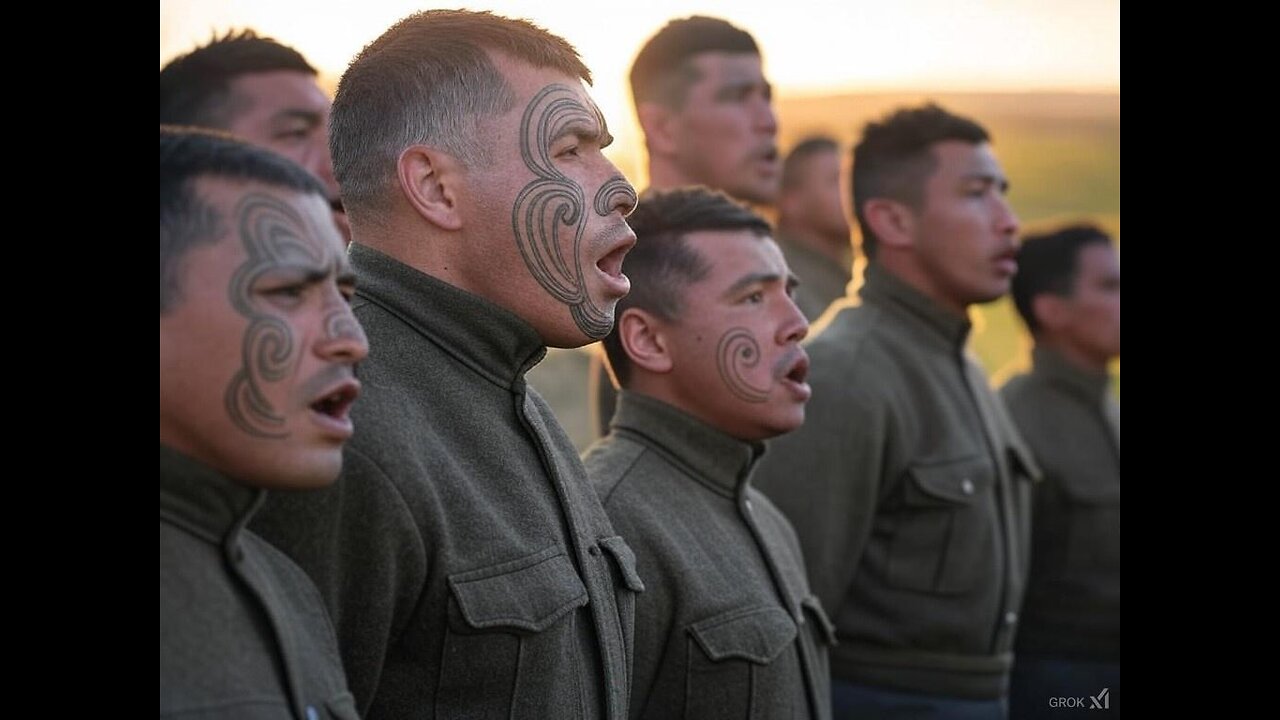Premium Only Content

Pokarekare Ana oDDBall
I'm unaccompanied
"Pokarekare Ana" is one of New Zealand's most well-known and beloved traditional Māori songs. Here's some background on the song:
Origins:
Composer: The song's exact origins are somewhat debated, but it is often attributed to Paraire Tomoana, a Māori composer, in the early 20th century. However, there are claims that the lyrics may have been based on a much older folk song.
Date: It was likely composed around the time of World War I, although exact dates are uncertain.
Lyrics and Meaning:
Language: The lyrics are in Māori, New Zealand's indigenous language.
Theme: The song speaks of love, longing, and the beauty of nature. The opening line "Pōkarekare ana ngā wai o Rotorua" translates roughly to "The waters of Rotorua are turbulent," setting a scene of natural beauty, which then transitions into expressions of love and desire for a loved one.
Translation: A rough translation of the chorus might be:
"Let me see your love, my darling, let your heart beat for me."
"Your love is like a treasure to me, oh, let it come to me."
Cultural Significance:
Love Song: It's often interpreted as a love song, but there's also an underlying tone of sadness, possibly reflecting the longing of Māori men who were away from home during wartime.
Wartime Connection: Given its popularity during World War I, "Pokarekare Ana" has sometimes been associated with soldiers' sentiments of missing home and their loved ones.
National Symbol: Over time, it has become an informal national anthem, sung at various occasions to evoke national pride and cultural identity.
Musical Style:
Melody: The melody is simple yet evocative, making it easy to sing and remember, which has contributed to its enduring popularity.
Performance: It's commonly performed a cappella or with minimal accompaniment, allowing the rich harmonies of Māori singing to shine through.
Impact and Usage:
Modern Covers: The song has been covered by numerous artists, both in New Zealand and internationally, often blending traditional elements with contemporary music styles.
Ceremonial Use: It's frequently sung at public events, including parliamentary sessions, national celebrations, and sports events like rugby matches, where it stirs feelings of unity and pride.
Cultural Education: "Pokarekare Ana" is taught in schools as part of New Zealand's cultural education, ensuring its melodies and lyrics are passed down through generations.
The song encapsulates not just a romantic narrative but also serves as a poignant reminder of New Zealand's history, particularly the impact of wars on its people and culture. Its enduring appeal lies in its ability to connect people to both their cultural roots and the universal themes of love and longing.
-
 3:15
3:15
Renditions of Good songs
3 days agoWhat Will I do oDDBall
101 -
 1:00:48
1:00:48
The StoneZONE with Roger Stone
2 hours agoJustin Trudeau Throws In The Towel! w/ Canadian Hockey Legend Theo Fluery | The StoneZONE
13.4K9 -
 1:18:37
1:18:37
We Like Shooting
12 hours ago $0.50 earnedDouble Tap 391(Gun Podcast)
5.04K -
 2:32:43
2:32:43
FreshandFit
12 hours agoAndrew Wilson VS Gary The Numbers Guy Astrology & Numerology Debate!
95.8K51 -
 9:22:40
9:22:40
Dr Disrespect
11 hours ago🔴LIVE - DR DISRESPECT - TRIPLE THREAT CHALLENGE - RIVALS, PUBG, WARZONE
197K40 -
 1:15:03
1:15:03
Dad Dojo Podcast
9 hours ago $0.97 earnedEP16: Parenting: Then vs Now
23K -
 53:58
53:58
Sarah Westall
3 hours agoBlack Pilled vs Learning Reality and Maintaining Perspective, AI Reality w/ Johnny Vedmore
44K2 -
 55:01
55:01
LFA TV
1 day agoJan. 6, 2021, vs. Jan. 6, 2025 | TRUMPET DAILY 1.6.25 7pm
28.1K1 -
 1:19:27
1:19:27
The Big Mig™
1 day agoLimitless Health with Calley Means
35.5K7 -
 1:37:26
1:37:26
Redacted News
7 hours agoBREAKING! Trump Effect is Real Justin Trudeau Resigns in Disgrace
154K220